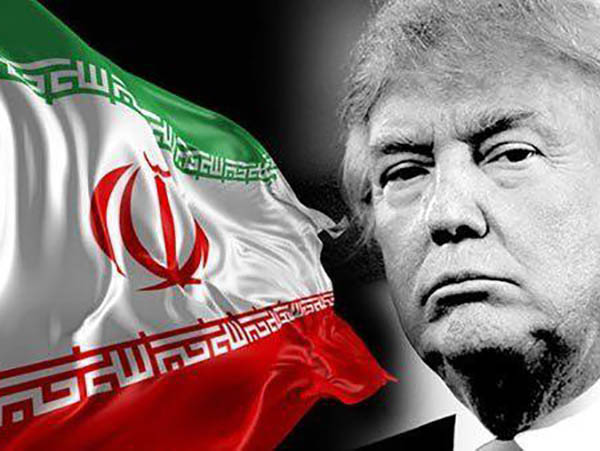In an opinion piece published by The Independent, Watt quoted American and Israeli security veterans as saying that the US president should understand the need for better ties with the Islamic Republic of Iran in order to realize regional peace.
What follows are excerpts of his article:
When things keep spiralling into chaos, the only way is to step back and take a hard look at the fundamentals. This week has tossed another couple of spoilers into the already fraught situation of the Middle East. The most notorious is President Donald Trump’s self-serving announcement that the United States will recognise Jerusalem as the capital of Israel, upending seven decades of careful international consensus on the unique nature of the city, and on the part its status has to play in honouring the rights of the Palestinians. The other is the news from Yemen of another blood-soaked development in its devastating war, with the rupture of the Houthi-Saleh alliance leading to the latter’s death and the prospect of more factional fighting.
The Trump announcement on Jerusalem has drawn almost universal opposition. The Persian Gulf states who had been pinning hopes on a return of American interest in their security, are appalled at the gratuitousness of a move that feeds popular resentment of the United States, and makes a partnership all the more costly for them, as it does for all Muslim countries. […]
The choices facing the countries of the region were already complicated enough. Though ISIS may now have been defeated in territorial terms, jihadist [extremist] insurgency in the region is not, as the recent atrocity in Northern Sinai attested. The measures taken against Qatar by four Arab states were in protest at what they saw as its continuing support for militant Islamist factions, described under the inaccurate title of “the Muslim Brotherhood”. Saudi Arabia meanwhile has made confronting Iran the centrepiece of its regional policy, finding common cause with Israel.
Iranian power in Arab lands has indeed increased as a result of the joint military effort to defeat ISIS in Iraq and Syria, in which Iranian Revolution Guards [IRGC] and Iranian-sponsored militias have played a major part. The Damascus regime remains critically dependent on them for its survival. In Lebanon, Iran’s proxy, Hezbollah, continues to hold the country hostage and to alarm Israel.
What is driving these conflictive tendencies? There is certainly a strong dose of ideology in the mix. Though Iran may no longer be claiming to export the Islamic Revolution of 1979, it does see itself as the protector of Shia minorities in the region. Saudi Arabia, for its part, sees itself as protecting Sunni Islam from Iranian encroachments. […]
A stronger driver though is self-protection, and a memory of existential vulnerability. This is certainly the case with Israel. For Iran too: Saddam Hussein’s unprompted aggression in 1980, which the UN Security Council infamously failed to condemn, and the eight years of devastating war that followed egged on by the major powers, left Iran convinced that only by acquiring strategic alliances with Iraq and Syria could it hope to defend itself in future. Saudi Arabia and its allies see this forward defence as aggression: the classic formula for an avoidable war. Israel’s constant threats to destroy Iran and its nuclear capability have led Iran to build up Hezbollah as a deterrent, which with its reported 160,000 missiles it probably now is.
Looking behind these essentially psychological factors, what is the reality of these threats? Is Iran intrinsically an existential threat to Israel? Is Israel intrinsically an existential threat to Iran? Is conflict between Iran and its Arab [Persian] Gulf neighbours inevitable? Does it have to be so? Is it beyond human intelligence to find a better way?
Respected Israeli security veterans have been arguing the need to talk to Iran. They should be heeded, and the debate opened up. Respected American voices have been calling for an end to the demonisation of Iran: the US administration should recognise that President Rouhani offers the best opportunity for diplomatic solutions, and Congress should not fall into the trap of imposing further sanctions. Honest advice needs to be given to Saudi Arabia about the best way to build regional security. The Europeans should stick to their guns on preserving the nuclear agreement with Iran, and Britain should come off the fence about the future of the occupied Palestinian territories.
Outside powers should learn to heed what the region is saying. Largely unnoticed, some countries, notably Egypt, the UAE and Oman, have been consistently arguing for de-escalation and for intelligent diplomacy. They need active support from the major powers, and the Permanent Five need to fulfil their responsibility for international peace and security. Not in the old, discredited way of imposing self-serving outcomes, of the kind President Trump has just inflicted. But by upholding principles that are the only foundation for peace, and by respecting the voices of a region too-long traduced by external power-plays.
